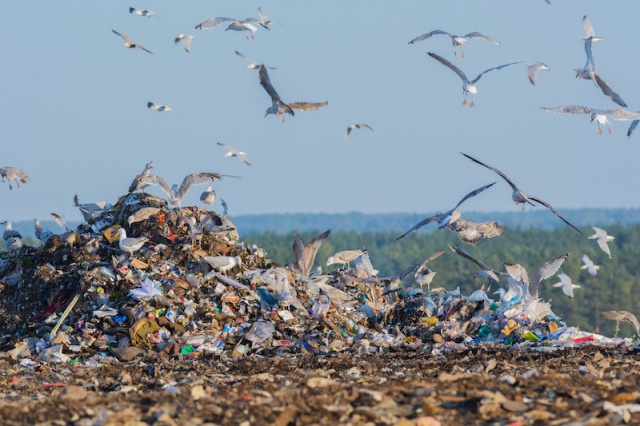Everyone can help Scotland reach net zero by tackling food waste.
People across the Highlands are being urged to make 2022 the year they stop wasting food, for good.
Around 600,000 tonnes of household food waste goes to landfill every year and only one third of adults understand the link between food waste and climate change.
The Scottish Governments Food Waste campaign has launched again this week with a new message encouraging people to save food, save money and save the earth.
When food waste isn’t recycled, and ends up in landfill, it decomposes and produces methane – a greenhouse gas that is more harmful than carbon dioxide.
But if recycled, food waste can be turned into green energy and used to power Scotland’s homes.
More people than ever planned and managed their food better in 2020 during the pandemic with searches for ‘Food Waste’ by Scots increasing by 89% on last year.
This new drive aims to show that more action is needed to reduce and recycle food waste to help Scotland reach net zero and stop contributing to climate change.
Circular Economy Minister Lorna Slater and Iain Gulland from Zero Waste Scotland launched the campaign today with Rachel Green at The Ripple Community Café, a hub that offers freshly made, nutritious and affordable meals to the local community using redistributed food in partnership with Edinburgh Community Food and the Cyrenian’s Fareshare.
Together they showed how simple it can be to reduce your food waste and cook up a tasty and low-cost meal by using up the leftover food which otherwise would end up in landfill.
Minister for Green Skills, Circular Economy and Biodiversity Lorna Slater, said:
“In the ongoing climate emergency, it’s impossible to ignore the global issue of food waste.
“That’s why the Scottish Government is investing in projects to reduce food waste and improve recycling facilities, but we all have a role to play.
“We can all do more to reduce and recycle food waste, cutting emissions and helping Scotland on our journey to net zero.
“Community hubs such as The Ripple Community Café play a vital role in utilising food which would otherwise go to waste while also providing a welcoming space to for locals.
“By utilising and supporting hubs like this we can drive home the message that each one of us can help save our food waste from ending up in landfills and ensure that it is recycled properly.”
Rachel Green, Director, The Ripple Community Café, said:
“We’re delighted to welcome The Minister and Iain along to the hub to showcase the fantastic work our staff and volunteers are doing to help tackle the fight against food waste.
“Not only does the Community Café provide a comfortable space for locals to come along and enjoy delicious food and good company, it also plays a bigger role in the community by educating people about what we do and why it’s so important that we all play a part in preventing food waste and doing our bit for the planet.”
As part of the campaign, a new handy guide has been created, 22 Food-Saving Wins to inspire and help people act on food waste in 2022 and beyond.
The guide includes top tips, information and advice and is available on netzeronation.org.
The national marketing campaign includes activity across TV, radio, digital and social media and is running until 20th March.
The new ‘Save Food. Save Money. Save the Earth.’ initiative showcases quick and simple steps people can take to reduce their food waste and recycle the waste they cannot avoid from banana skins to eggshells.
Not only can Scots help save the earth, but each household could also save approximately £440 per year.
Zero Waste Scotland Chief Executive Iain Gulland, said:
“Scottish households continue to throw away a staggering amount of food waste, totalling £1.1billion in unnecessary food and drink purchases each year.
“We can all play our part by making simple, sustainable, changes – such as meal planning, storing food correctly, checking the cupboards for ingredients before hitting the shops, and getting inventive with leftovers.
“Getting food onto our plates is a resource intensive process – so, when food is thrown out, all the raw materials are also wasted.
“We can have a huge, positive, impact on the climate by stopping perfectly edible food from going to waste in the first place.”
For tips to save food, save money, save the earth, go to netzeronation.scot



